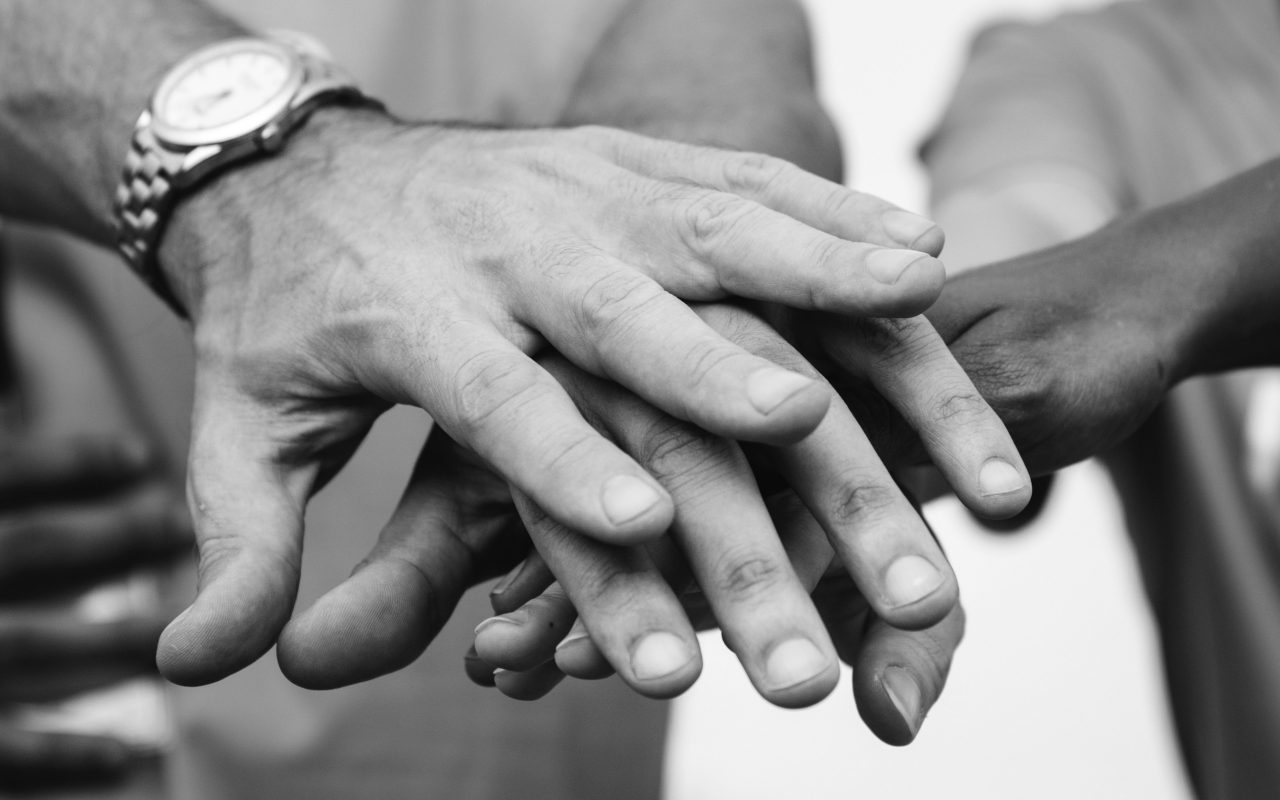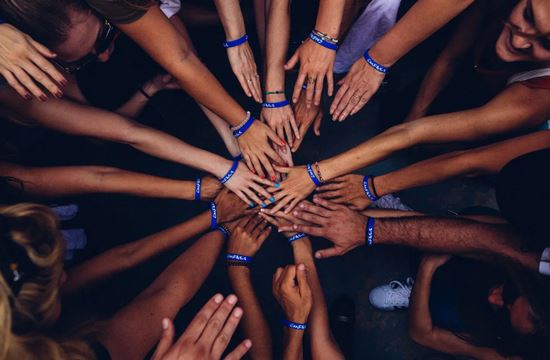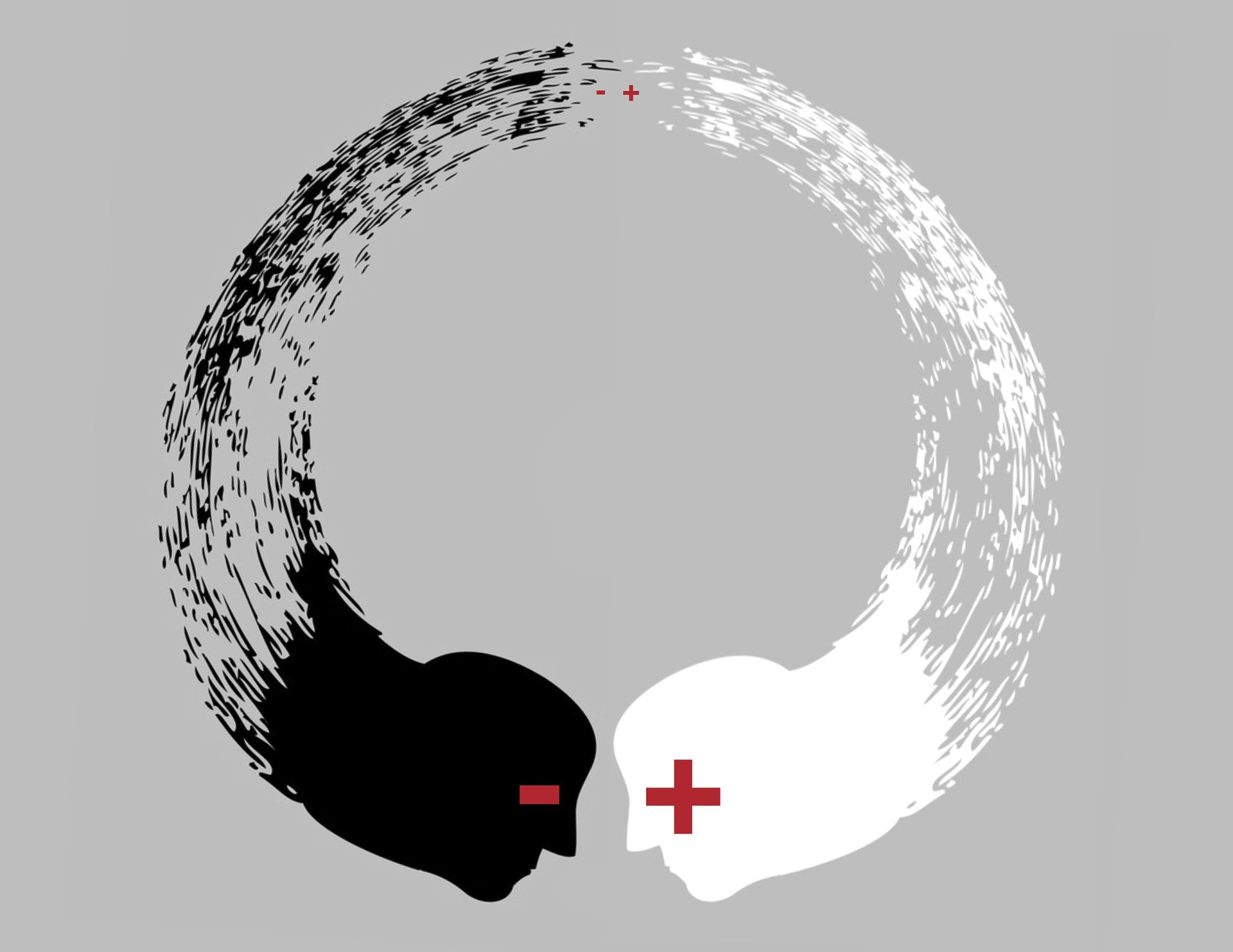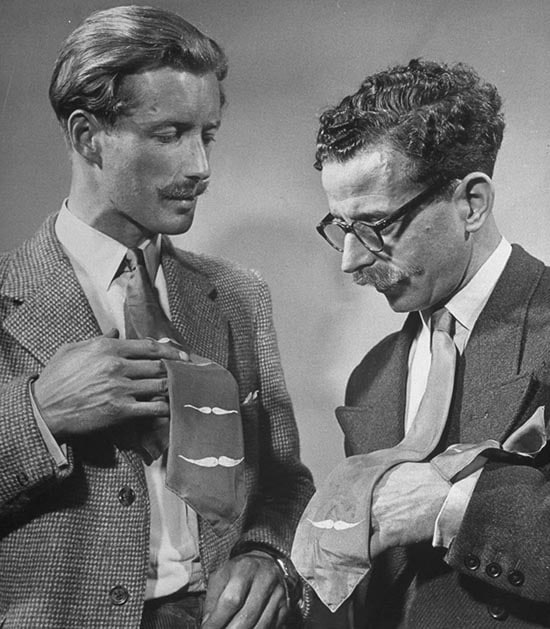More In Common
We Have More In Common Than That Which Divides Us

"We are more united and have far more in common with each other, than things that which divides us."
These words were spoken by UK MP Jo Cox in her maiden speech to Parliament in 2015.
One year later she was murdered and her words went viral. Millions of people across the country realised that Jo was speaking for them. As her sister and founder of the The Jo Cox Foundation said:
"Community meant everything to Jo. And it was the ‘unity’ in community that mattered most."
More In Common And Yet...
Here is an example from the other end of spectrum.
Consider the delusional and divisive comments of the President of the US on the night of 2020 Presidential election.
Here we have the most powerful man in the world addressing the electorate and trashing the US electoral system in the eyes of the world.
We are currently living in troubled times where:
- Experts are denigrated and ignorance, bias and prejudice is celebrated;
- Intelligent discussion and agreement to disagree and respect for other shades of opinion are denied in the current cancel culture;
- Public debate is hijacked and taken over by group think and mob rule.
- Woke thinking takes precedence over reasoned debate;
- Virtue signally takes precedence over private philanthropy.
And yet most of the time, in most circumstances, people are the same.
I recall becoming very aware of this when I first traveled to, lived and worked in various countries in S.E.Asia. I noticed very quickly that despite our ethnic, cultural other differences at root, we all want the same things. We value the same things. We see things in the same way. We have more in common.
We all want to be
loved, to be respected, we all want the best for our children, we all
want to good health, at the most basic level we all want food, sex,
shelter and money.
Anyone who has traveled extensively in other countries and cultures will have observed this.
More In Common - Similarities Between Groups of People Are Large and Important

I recently read an important piece of research that, unlike most studies which focus on differences, took a very large dataset and calculated the similarities between populations:
A New Way to Look at the Data: Similarities Between Groups of People Are Large and Important
The study took a large international survey of 86,272 people and categorized them by age, gender, education, nationality, education, and religion.
The survey
asked them all questions to gauge their values around 22 different
topics (trust in science, the importance of education, morality, etc.)
The
researchers then cross-analyzed the data in every way they could to
determine which groups of people around the world are the most similar
and dissimilar.
In all, they ran over 168,000 comparisons and found that, on average, people’s values were 93.3% the same.
Of all of the comparisons, only 0.66% of them produced results where populations were more dissimilar in their values than they were similar.
More In Common - The Duality Paradox

We live in a universe of vibration, and whether we think of vibration in terms of waves or particles, no crest of a wave can occur without a trough, and no particle can occur without a space or interval between itself and other particles.
Put simply, there can be no up without a down, no black without a white, no good without a bad.
Beyond the mind, you jump out of subject-object relationship into a realm where there is no duality.
But in the everyday realm of the conscious mind we cause and experience so much pain and suffering by our refusal to accept that for things to be good they have to be bad, for things to be well they have to be wrong, to be understood and valued we have to be denigrated and unappreciated.
Thus our individual and group identity is entirely dependent on the other perspective.
Not only do we have more in common - we have everything in common.
My view is quite simple: Why don't we focus on that which we want in a positive way and drop the negativity bias?
A Personal Perspective on More In Common
What you focus on grows.
So my question to all those who are championing any cause or point of view is this: Are you focused on the positives, on what you DO want to happen and thus on unity?
Or, are you focused on the negative, on what you DON'T want to see happen and thus on division?
Wouldn't it be wonderful to see the activist group "Black Lives Matter" focusing on what they do want rather than what they don't want?
So rather than focusing on instances of white police officers behaving badly towards black suspects they focused on what they do want which is instances where white police officers act with civility and decency to black suspects?
Imagine a video going viral showing a white police officer behaving in a kindly, helpful and supportive way towards a black person?
Wouldn't it be wonderful if the "Me Too" movement celebrated the lives and actions of prominent male producers who have acted with kindness and decency and shown courteous support to actresses?
Wouldn't it be wonderful if the leading protagonists of the various causes espoused by "wokeness" focused on the positive examples of people and organisations who do behave in alignment with the causes they espouse.
In my view the fastest and most effective way to realise that we have more in common is to ensure that:
- Your point of focus is positive
- Your point of focus is on uniting people.
I want to close this article with an excellent example of this:
Resource: More In Common
Further reading:
Dunbar's Number - More In Common And
The Narcissism of Minor Differences
What Is My Life Purpose
Introducing "The Balanced Toolkit" Approach To Life
Return to: The Meaning Of Life
LATEST ARTICLES
The Inner Weight of Shame - Sustained By Attentional Fixation
 A Mind That Is Continuously Engaged In Self-Surveillance. Shame is one of the heaviest inner burdens a human being can carry. It does not announce itself loudly or demand attention through drama. Inst…
A Mind That Is Continuously Engaged In Self-Surveillance. Shame is one of the heaviest inner burdens a human being can carry. It does not announce itself loudly or demand attention through drama. Inst…Does Prayer Work? The Psychology of Prayer, Meditation and Outcomes
 Reality Is A Complex System Of Countless Interactions - Including Yours. So does prayer work? The problem is that the question itself is usually framed in a way that guarantees confusion. We tend to a…
Reality Is A Complex System Of Countless Interactions - Including Yours. So does prayer work? The problem is that the question itself is usually framed in a way that guarantees confusion. We tend to a…Living in Survival Mode Without Surrendering Mental Authority
Living in Survival Mode Without Surrendering Mental Authority
 Clear Thinking When You’re Just Trying to Stay Afloat. Many people today are overwhelmed because they are living in survival mode - not temporarily, but as a persistent condition of life. For many, th…
Clear Thinking When You’re Just Trying to Stay Afloat. Many people today are overwhelmed because they are living in survival mode - not temporarily, but as a persistent condition of life. For many, th…Manifestation Without Magic: A Practical Model
 Manifestation without magic is not a softer or more intellectual version of popular manifestation culture. It is a different model altogether. Popular manifestation teachings tend to frame reality as…
Manifestation without magic is not a softer or more intellectual version of popular manifestation culture. It is a different model altogether. Popular manifestation teachings tend to frame reality as…Staying Committed When You Can't See Progress - The Psychology of Grit
 Uncertainty Is Not The Absence Of Progress, Only The Absence Of Reassurance. One of the most destabilising experiences in modern life is not failure, but uncertainty and staying committed when you can…
Uncertainty Is Not The Absence Of Progress, Only The Absence Of Reassurance. One of the most destabilising experiences in modern life is not failure, but uncertainty and staying committed when you can…The Battle For Your Mind - How To Win Inner Freedom In A Digital Age Of Distraction
 From External Events to Inner Events. We often think of “events” as things that happen out there: the traffic jam, the rude comment, the delayed email reply. But what truly shapes our experience is wh…
From External Events to Inner Events. We often think of “events” as things that happen out there: the traffic jam, the rude comment, the delayed email reply. But what truly shapes our experience is wh…How to See Your Thoughts Without Becoming the Story
 A Practical Guide to Thought-Awareness. You can spend your life inside the stories of your mind without ever learning how to see your thoughts clearly and objectively. Most of the stuff we tell oursel…
A Practical Guide to Thought-Awareness. You can spend your life inside the stories of your mind without ever learning how to see your thoughts clearly and objectively. Most of the stuff we tell oursel…The Collison Decision Matrix - A Simple Framework for Better Choices
 The Collison Decision Matrix Is A Practical Everyday Thinking Tool. Most of us spend a surprising amount of time worrying about decisions. From small ones such as what to wear, what to eat, what to te…
The Collison Decision Matrix Is A Practical Everyday Thinking Tool. Most of us spend a surprising amount of time worrying about decisions. From small ones such as what to wear, what to eat, what to te…The Power Of Asking The Right Question
 The Power Of Asking The Right Question Lies In The Quest For Insight. To experience the power of asking the right question you must develop the practice of asking questions. The best way to improve th…
The Power Of Asking The Right Question Lies In The Quest For Insight. To experience the power of asking the right question you must develop the practice of asking questions. The best way to improve th…Site Pathways
 Here is a site pathway to help new readers of Zen-Tools navigate the material on this site. Each pathway is based around one of the many key themes covered on this site and contain a 150 word introduc…
Here is a site pathway to help new readers of Zen-Tools navigate the material on this site. Each pathway is based around one of the many key themes covered on this site and contain a 150 word introduc…How To Live With Contradiction - Beyond Thought Let Stillness Speak
 A major impact on so many peoples' lives is the situational contradiction of unfilled realistic expectations. So where does all this leave us? Well here we are, with mental equipment that is more lim…
A major impact on so many peoples' lives is the situational contradiction of unfilled realistic expectations. So where does all this leave us? Well here we are, with mental equipment that is more lim…
